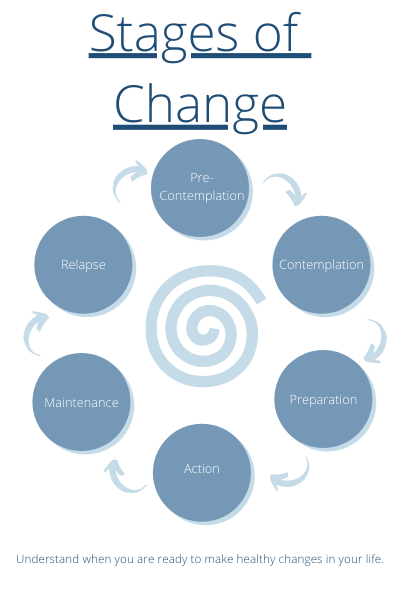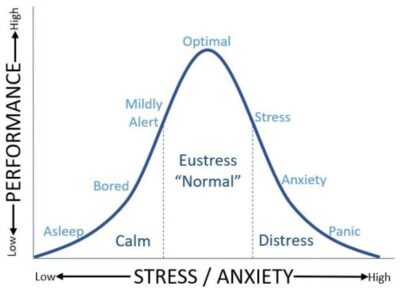How to Recognize and Prevent Burnout

What is Burnout?
Have you ever experienced burnout? Burnout is considered an “occupational phenomenon” by the World Health Organization. It is a result of chronic workplace stress that is unmanaged. Most people spend the majority of their waking hours working. If your job is stressful, unsatisfying, or pure hatred, it can significantly impact your wellbeing and cause burnout.
Although burnout stems primarily from work-related stress, there are other contributing factors. Stress experienced from activities outside of work can add to burnout. Furthermore, certain personality traits, such as perfectionism, can cause someone to be more susceptible to experiencing burnout. It impacts both the employee as well as employer. Research studies found that increased burnout resulted in decreased job satisfaction, lower job commitment, and increased absences.
Burnout is typically classified into three categories:
- feelings of tiredness or energy depletion.
- increased negativity or cynicism or becoming mentally distance from one’s job.
- reduced professional efficiency (i.e., taking longer than usual to complete tasks).
How Burnout Impacts Mental & Physical Health
| Mental Health Symptoms | |
| Increased stress & frustration | Feeling of “going through the motions” |
| Negativity & cynicism towards work | Inability to be create or resourceful |
| Emotionally distant or numb | Feeling hopeless about improvements |
| Decreased concentration | Reduced performance |
| Difficulties gaining energy to accomplish tasks | Sunday ‘blues’ |
| Physical Health Symptoms | |
| Headaches | Gastrointestinal problems |
| Muscle tension | Exhaustion or tiredness |
| High blood pressure | Low-grade illness (i.e., cold, nausea, etc.) |
| Upset stomach | Lowered immune system |
What Causes Burnout?
The concept of “work” encapsulates multiple facets. When people are frustrated about work, it typically isn’t the actual work itself. It usually involves other facets to include schedule, working conditions, supervisors/boss, or colleagues. If you are someone that is frustrated with work, narrow it down to determine exactly what bothers you about your job. Some specific common causes of burnout in the workplace include:
- Unreasonable expectations placed on you by either yourself or others.
- Lack of communication or support from your supervisor.
- Unsupportive working environment amongst colleagues.
- Unmanageable workload.
- Lack of clarity regarding job roles and responsibilities.
- Being treatment differently or unfairly.
- Not being shown appreciation (i.e., verbal, financial, etc.) for your efforts.
- Incongruence between your values and those of the company.
- Caring for others at your own detriment.
- Lack of control regarding work environment and job duties.
How to Prevent Burnout
It is possible to manage or overcome burnout. The initial step is to recognize the symptoms of burnout. Once the signs and symptoms are identified, only then can change occur.
- Unplug. Remove yourself from work-related thoughts or activities outside of work. Setting a boundary between work and other aspects of life can help decrease stress.
- Connect with others. Speaking with a trusted friend, family member, or colleague can be beneficial to decreasing your own stress and keep you grounded.
- Increase physical activity. This is usually the first activity that is stopped when we experience burnout, but can actually decrease stress. The more stress you experience, the more physical activity you should consider adding into your daily routine.
- Find the good. Reflecting on positive moments no matter how brief or your job strengths can help bolster your mood to help prevent burnout.
- Take “micro” breaks. Taking 5 to 10 minutes to pause and implement mindfulness can help you be more productive and preserve energy throughout the day.
- Create Balance. Make sure you are spreading energy to all aspects of your life. Continue to spend time with family and friends, participate in hobbies, and engage in your community.
- Maintain basic hygiene and health. Make sure you are eating well, drinking plenty of water, and engaging in proper hygiene such as showering, brushing your teeth, etc. Typically when we are stressed, these tasks become less important and we may stop engaging in them appropriately. However, these are basic self-care activities that help bolster our mood daily.
- Focus on what you can control. Much of our work day cannot be controlled. We typically don’t have control over the workload, environmental comforts, or the people surrounding us. Lack of control can increase burnout. Focus on a few key aspects that you have control over such as your lunch food, music you listen to on the drive, or images you display at work.
Conclusions
Workplace stress can easily turn into burnout if we don’t work to prevent and manage it effectively. So, I encourage you to take some time to consider your own stress level and whether you are experiencing burnout. What does burnout look like for you? Also consider what specifically about the workplace is causing you stress (i.e., work, schedule, a certain colleague, supervisor, etc.) After taking some time to reflect, I encourage you to then focus on what changes need to occur that you have control over. Bookmark this page to come back to in the future as you work to prevent burnout.
Want to learn more about stress? Check out these similar articles:




